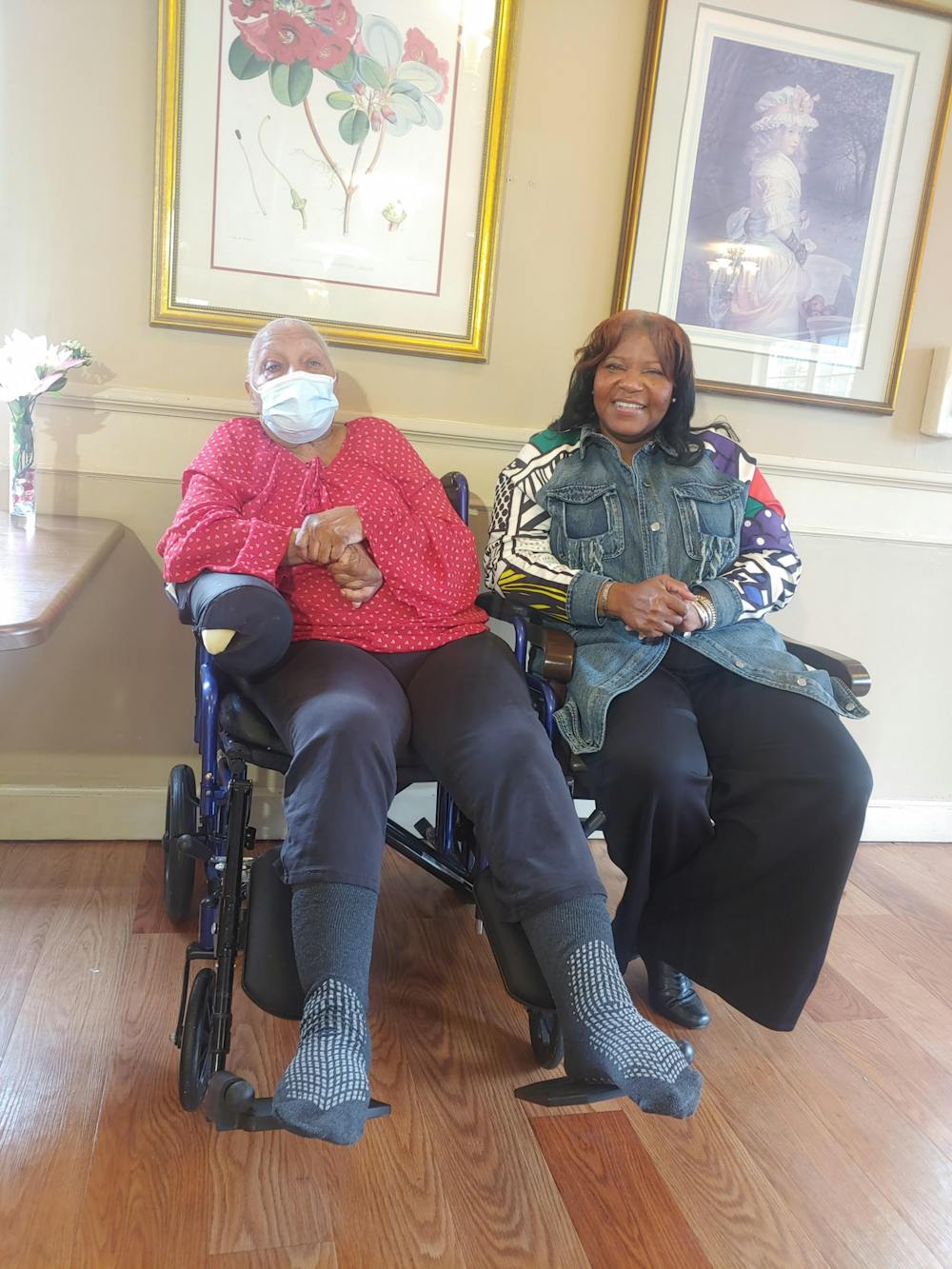Wendy Cooper felt like she had completely lost her mom when she was diagnosed with Alzheimer’s disease seven years ago, so she decided she was going to do everything possible to improve her understanding of the disease.
Cooper, owner of the Charlottesville small business From Me 2U, researched heavily to educate herself, attended meetings on Alzheimer’s and asked her mother’s doctors and nurses questions about the disease. She also filmed her mother during key moments to cherish critical memories.
“Every day when I would go visit, or I would have time with her for the past seven or eight years, I would film our encounters, and I always wondered, what was I going to do with all of this footage?” Cooper said.
This past summer, Cooper — along with several members of the University faculty, including Assoc. Nursing Prof. Ishan Williams, Data Science and Psychology Prof. Jack Van Horn and Biology Prof. George Bloom — set out to create a film educating people of all ages about Alzheimer's disease. They also enlisted the help of fourth-year College student Lucy Gilbert and fourth-year College student Karen Zipor.
The film has several goals, including explaining how Alzheimer’s progresses in the brain. According to their proposal, the movie will describe the biology of cellular breakdown in Alzheimer’s. It will discuss how the disease progresses, starting with plaque generation, caused by the deposition of a substance called tau that builds up in the brain. This leads to the eventual loss of neurons.
The film will also elaborate on the timeline of the disease, showing which brain areas are affected and in what order as well as how that contributes to the memory loss and behavioral changes associated with Alzheimer's disease.
The filmmakers also aim to show the human side of the disease — including how it affects caregivers and the loved ones of the patient, hoping that it will provide a vital resource for researchers and clinicians to showcase current scientific understanding and research. In doing so, they hope to ensure that patients, their families, community organizations, as well as junior researchers in Alzheimer's understand the neurobiological foundations of the disease.
Through the 3Cavaliers Program, Williams, Van Horn and Bloom were able to get the $60,000 necessary to fund the project in the fall. The 3Cavaliers program is an interdisciplinary seed-funding initiative where teams must be made up of three faculty members, with at least two of those faculty coming from different disciplines, departments or schools. Animating Alzheimer's Disease was one of 57 projects that received funding this year, to promote cooperation between faculty members of different disciplines to come together around a common theme. Cooper provided the group with footage to help create the film.
The students, Zipor and Gilbert, served as co-editors for the project. While Zipor — the main videographer and animator for the film – directed on-camera interviews, put together the initial edit and created the animations, Gilbert worked in post-production, trimming footage, editing sound, color correction and finding supplementary stock footage and music.
In the months since the film was first conceived by the team, it has evolved and went through several revisions. It will be roughly 30 minutes long and will premiere this May.
For Zipor, the film has been an opportunity to learn more about Alzheimer’s disease and how it affects both a patient and their loved ones. She believes that the film will reach a wide audience and enlighten even those who don’t have direct connections to the disease.
“A big point of the film is that, with the right measures, the risks for developing this disease can greatly be mitigated,” Zipor said in an email to The Cavalier Daily. “Alzheimer's is slowly becoming an epidemic as our population is living longer and longer, and it's something everyone should know about.”
Gilbert — whose grandmother fought the disease — is happy about the great strides made in research to fight Alzheimer's disease.
“I hope this documentary can further inspire the next generation of scientists to continue today’s progress in the battle to eradicate Alzheimer’s, a disorder that affects more and more people each year,” Gilbert said in an email to The Cavalier Daily.
Van Horn expects that the film will be used to help caregivers and families who have a loved one with Alzheimer's disease. He also believes the film will showcase the ways in which the University is at the forefront of Alzheimer’s research, with the potential to make breakthroughs in human neuroimaging, foundational biology and data science.
“Alzheimer’s has affected us all in one way or another,” Van Horn said. “It certainly has affected my family and … will probably affect yours. It is … something that we need to learn more about, we need to become more educated about, and we need to educate the community about.”
Cooper anticipates that the film will teach others how people with Alzheimer’s feel as the disease progresses, as well as the science of the disease. She hopes it will help people understand why a patient may have a miscommunication or misfire. She also wants to highlight those surrounding the patient, including family members, doctors and nurses.
“We have to know how to communicate with [Alzheimer’s Patients] and relate to them,” Cooper said. “When they have misfires, you’ve got to know it's not them, they’re just having a misfire.”
Inspired by working on the film, Cooper is also writing a book about her experiences with her mother entitled “Filling a Big Hole for Many People,” feeling a sense of duty to translate her knowledge to help many others fighting the disease.
“After I became educated I realized that I didn’t lose her,” Cooper said. “I actually gained more because it brought us closer. It has impacted my life to be more compassionate and have the wherewithal to understand that I’m not alone.”







